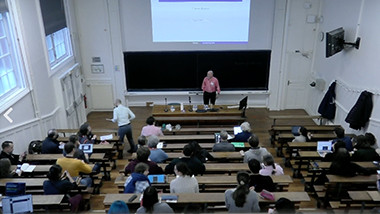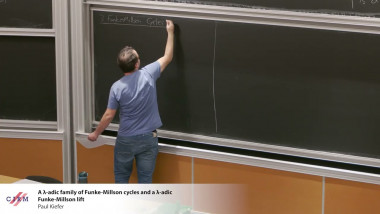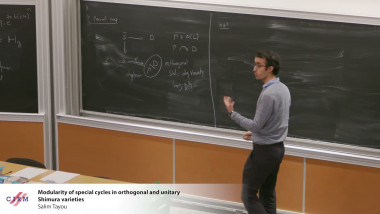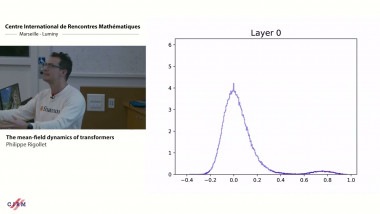Appears in collection : Galois differential Theories and transcendence Thematic Month Week 4 / Théories de Galois différentielles et transcendance Mois thématique semaine 4
The degree of a dominant rational map $f: \mathbb{P}^n \rightarrow \mathbb{P}^n$ is the common degree of its homogeneous components. By considering iterates of $f$, one can form a sequence $\operatorname{deg}\left(f^n\right)$, which is submultiplicative and hence has the property that there is some $\lambda \geq 1$ such that $\left(\operatorname{deg}\left(f^n\right)\right)^{1 / n} \rightarrow \lambda$. The quantity $\lambda$ is called the first dynamical degree of $f$. We'll give an overview of the significance of the dynamical degree in complex dynamics and describe an example of a birational self-map of $\mathbb{P}^3$ in which this dynamical degree is provably transcendental. This is joint work with Jeffrey Diller, Mattias Jonsson, and Holly Krieger.















![[1243] Degrés dynamiques](/media/cache/video_light/uploads/video/SeminaireBourbaki.jpg)
